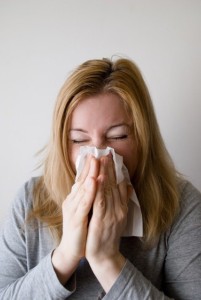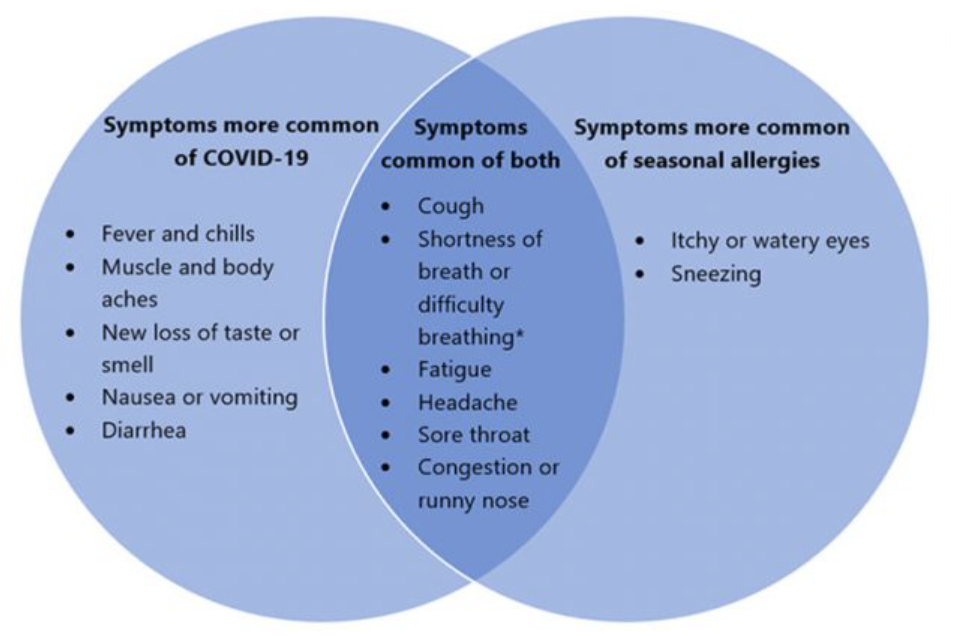It’s that time of year again, and folks are asking what should they do when they have symptoms of seasonal allergies during what is still a pandemic.
If you have seasonal allergies, here are some precautions you can take to stay safe and help keep others safe:

-
- Do NOT come to work sick. Many symptoms of allergies are also symptoms of Covid-19. See the Venn diagram above for more about symptoms.
- Consult with your healthcare provider about ways to manage your allergies.
- Get vaccinated against Covid.
- Continue to wear a mask around others. The good news about face masks is they may also protect you from the cause of your seasonal allergies, especially when worn outdoors.
- Wash your hands often.
- Continue to maintain physical distance from others when possible.
- Avoid crowds and other high-risk situations.
COVID-19 is a contagious respiratory illness caused by infection with a new coronavirus (called SARS-CoV-2, the virus that causes COVID-19). Seasonal allergies triggered by airborne pollen can lead to seasonal allergic rhinitis, which affects the nose and sinuses, and seasonal allergic conjunctivitis, which affects the eyes.
COVID-19 and seasonal allergies share many symptoms, but there are some key differences between the two. For example, COVID-19 can cause fever, which is not a common symptom of seasonal allergies. The image below compares symptoms caused by allergies and COVID-19.
Because some of the symptoms of COVID-19 and seasonal allergies are similar, it may be difficult to tell the difference between them, and you may need to get a test to confirm your diagnosis.
If the diagram doesn’t show up in your email, here’s the text:
Symptoms more common of COVID-19
- Fever and chills
- Muscle and body aches
- New loss of taste or smell
- Nausea or vomiting
- Diarrhea
Symptoms common of both Covid-19 and seasonal allergies
- Cough
- Shortness of breath or difficulty breathing*
- Fatigue
- Headache
- Sore throat
- Congestion or runny nose
Symptoms more common of seasonal allergies
- Itchy or watery eyes
- Sneezing
*Seasonal allergies do not usually cause shortness of breath or difficulty breathing, unless a person has a respiratory condition such as asthma that can be triggered by exposure to pollen.
This is not a complete list of all possible symptoms of COVID-19 or seasonal allergies. Symptoms vary from person to person and range from mild to severe. You can have symptoms of both COVID-19 and seasonal allergies at the same time.
If you think you have COVID-19, follow CDC’s guidance on ”What to do if you are sick.” If you have an emergency warning sign (including trouble breathing), seek emergency medical care immediately.
Get more information on COVID-19 symptoms, or more information on seasonal allergy symptoms.
Source: CDC.gov

